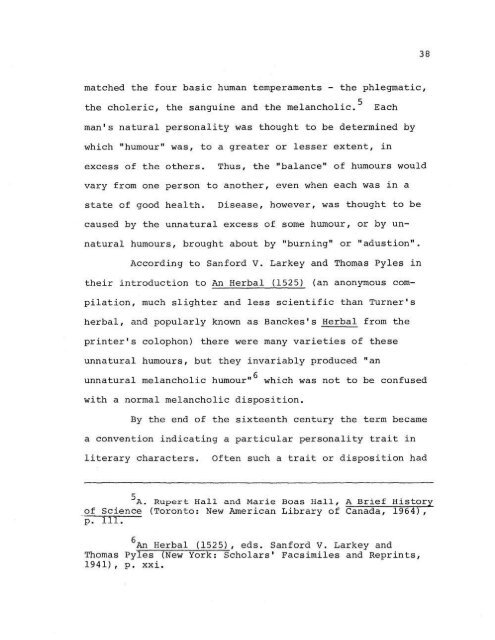Untitled - Memorial University's Digital Archives Initiative - Memorial ...
Untitled - Memorial University's Digital Archives Initiative - Memorial ...
Untitled - Memorial University's Digital Archives Initiative - Memorial ...
You also want an ePaper? Increase the reach of your titles
YUMPU automatically turns print PDFs into web optimized ePapers that Google loves.
matched the four basic human temperaments - the phlegmatic,<br />
the choleric, the sanguine and the melancholic. 5 Each<br />
man's natural personality was thought to be determined by<br />
which "humour" was, to a greater or lesser extent, in<br />
excess of the others. Thus, the "balance" of humours would<br />
vary from one person to another, even when each was in a<br />
state of good health. Disease, however, was thought to be<br />
caused by the unnatural excess of some humour, or by un-<br />
natural humours, brought about by "burning" or "adustion".<br />
According to Sanford V. Larkey and Thomas Pyles in<br />
their introduction to An Herbal (1525) (an anonymous com-<br />
pilation, much slighter and less scientific than Turner's<br />
herbal, and popularly known as Banckes' s Herbal from the<br />
printer's colophon) there were many varieties of these<br />
unnatural humours, but they invariably produced "an<br />
unnatural melancholic humour,,6 which was not to be confused<br />
with a normal melancholic disposition.<br />
By the end of the sixteenth century the term became<br />
a convention indicating a particular personality trait in<br />
literary characters. Often such a trait or disposition had<br />
SA. Rupert 81;1..11

















